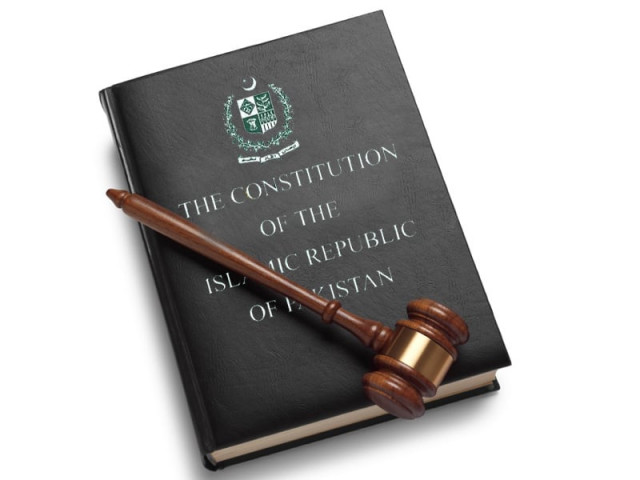Provincial autonomy day: Experts say provinces need to rethink governance
Call for further devolution of powers, local government system.

According to Khan, the unanimous adoption of the 18th, 19th and 20th constitutional amendments reflects the maturity of the political class. PHOTO: FILE
“With the autonomy provinces enjoy after the passage of the 18th Amendment, they (federating units) should further devolve their powers to districts by establishing elected local governments with proper political and fiscal powers, and administrative authority,” said Zafarullah Khan, who heads an NGO called Centre for Civic Education dedicated to promoting democratic values.
“Citizens, in absence of functional local governments, will not be able to comprehend what the actual fruits of autonomy and the dividends of devolution are,” he observed.
Functional federalism with the provinces at the heart of it was the foundational vision for the creation of Pakistan, noted Khan.
“The aspiration for provincial autonomy figures prominently in the fourteen points of Quaid-e-Azam when he demanded that the future constitution should be federal with residuary powers vested in the provinces,” he said.
According to Khan, the unanimous adoption of the 18th, 19th and 20th constitutional amendments reflects the maturity of the political class.
SM Zafar, a member of the parliamentary committee which prepared the 18th amendment, urged the government to form a committee to review its controversial clauses.
“The exclusion of a concurrent list in the 18th amendment has created several legal issues. These issues must be reviewed by the committee,” he told The Express Tribune.
Meanwhile, Information Minister Pervaiz Rashid termed the provincial autonomy day ‘a landmark in history of democracy’. However, he said if someone has concerns over some clauses in the 18th amendment then he or she should come forward with positive suggestions.
Published in The Express Tribune, July 1st, 2013.



















COMMENTS
Comments are moderated and generally will be posted if they are on-topic and not abusive.
For more information, please see our Comments FAQ